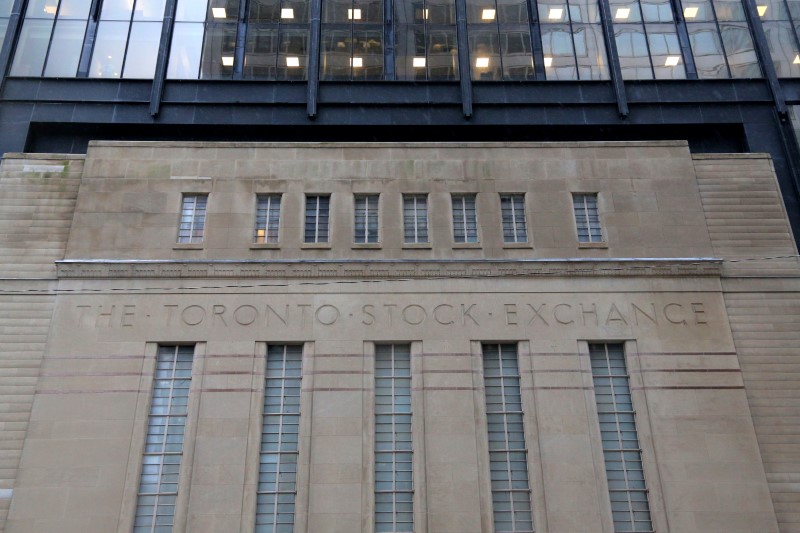IREN proposes $875 million convertible notes offering due 2031
Investing.com - Futures linked to Canada’s main stock exchange pointed lower on Thursday, as optimism over a benign U.S. inflation figure cooled and signs of tensions in the Middle East increased.
The S&P/TSX 60 index standard futures contract had fallen by 6 points, or 0.4%, by 07:03 ET (11:03 GMT).
Toronto Stock Exchange’s S&P/TSX composite index rose by 97.85 points, or 0.4%, on Wednesday, logging a new record high that topped a prior peak notched on Friday.
A surge in oil prices underpinned stocks in the commodity-heavy index, with energy names in particular adding 2.2%. A softer-than-anticipated U.S. consumer price reading also helped to bolster investor sentiment.
U.S. futures edge lower
U.S. stock index futures fell Thursday on caution after the announcement of a framework agreement between Washington and Beijing and amid heightened tensions in the Middle East.
At 07:10 ET, Dow Jones Futures fell 277 points, or 0.7%, S&P 500 Futures dropped 28 points, or 0.5%, and Nasdaq 100 Futures slipped 85 points, or 0.4%.
The main Wall Street indices mostly suffered a losing day on Wednesday, with the broad-based S&P 500 snapping its three-day win streak, dropping 0.3%, just more than 2% below its late February record.
Caution over trade deals
Investors are reacting with caution after U.S. President Donald Trump claimed that a trade deal with China was done, and just needed to be approved by the presidents of both countries.
Speaking to reporters on Wednesday, Trump claimed that the White House was "rocking in terms of deals," adding that "quite a few countries [...] want to make a deal with us."
He also said he will send letters to major U.S. trading partners in the next two weeks outlining his planned trade tariffs, ahead of a July 9 deadline to strike trade deals with his administration.
Trump said that countries will be offered a trade deal that they could take or leave, likely implying that he will proceed with his plans to impose steep trade tariffs. Trump had in early-April unveiled his “liberation day” tariffs, but had announced a 90-day extension in the duties to allow for more trade negotiations.
Trump also said there would be no need to extend his July deadline for trade deals, although the president has in the past constantly postponed his trade deadlines.
The president paused the implementation of his broadest tariffs in April, in a bid to give negotiators time to hammer out a series of agreements. However, with the 90-day halt set to end on July 8, the U.S. has just one trade deal agreed with Britain.
Adding to the uncertainty, Trump confirmed on Wednesday evening that the U.S. was evacuating personnel from the Middle East, ramping up concerns that a military escalation with Iran was imminent.
Nuclear talks with Iran were seen going poorly, with a two-month deadline to strike a deal expiring this week.
PPI, jobless claims due
Investors will also study the upcoming producer price index inflation data and weekly jobless claims for more U.S. economic cues, particularly given the chaotic trade policies over the last couple of months.
Markets took little support from Wednesday’s softer-than-expected consumer inflation data, although the reading did show that the expected inflation impact of Trump’s tariffs was yet to manifest.
Oracle lifts revenue growth target
Shares in Oracle (NYSE:ORCL) surged in premarket trading after the cloud-computing group lifted its annual revenue growth target and highlighted solid demand from clients aiming to harness artificial intelligence.
Oracle CEO Safra Catz told investors in a post-earnings call on Wednesday that total revenue in its 2026 fiscal year is expected to be at least $67 billion, implying yearly growth of roughly 16.7%.
The company had previously guided for an increase of 15%.
Gold prices climb
Gold prices rose, as safe haven demand was boosted by heightened concerns over military action with Iran, while Trump’s comments on trade tariffs elicited a risk-averse reaction.
Bullion prices were already sitting on some gains this week amid increased uncertainty over U.S.-China trade talks. While the talks appeared to have yielded some progress, a lack of clear details on the agreement kept investors largely risk-averse.
Spot gold rose 0.9% to $3,384.88 an ounce, while gold futures for August rallied 1.8% to $3,404.50/oz by 07:12 ET.
Crude retreats after sharp gains
Oil prices slipped, handing back some of the previous session’s sharp gains as the U.S. authorised voluntary departures for military dependents in the Middle East amid rising tensions with Iran.
At 07:12 ET, Brent futures dropped 1.7% to $68.58 a barrel and U.S. West Texas Intermediate crude futures fell 1.7% to $66.97 per barrel.
Both contracts surged over 4% on Wednesday during a turbulent trading session, supported by the progress in U.S.-China trade talks, which has helped reduce demand concerns, with free-flowing trade expected to boost global economic activity and thus crude demand.
Wednesday’s spike reflects heightened geopolitical risk, as investors feared any conflict could disrupt shipping routes or oil infrastructure across the Gulf.
(Peter Nurse and Ambar Warrick contributed reporting.)
